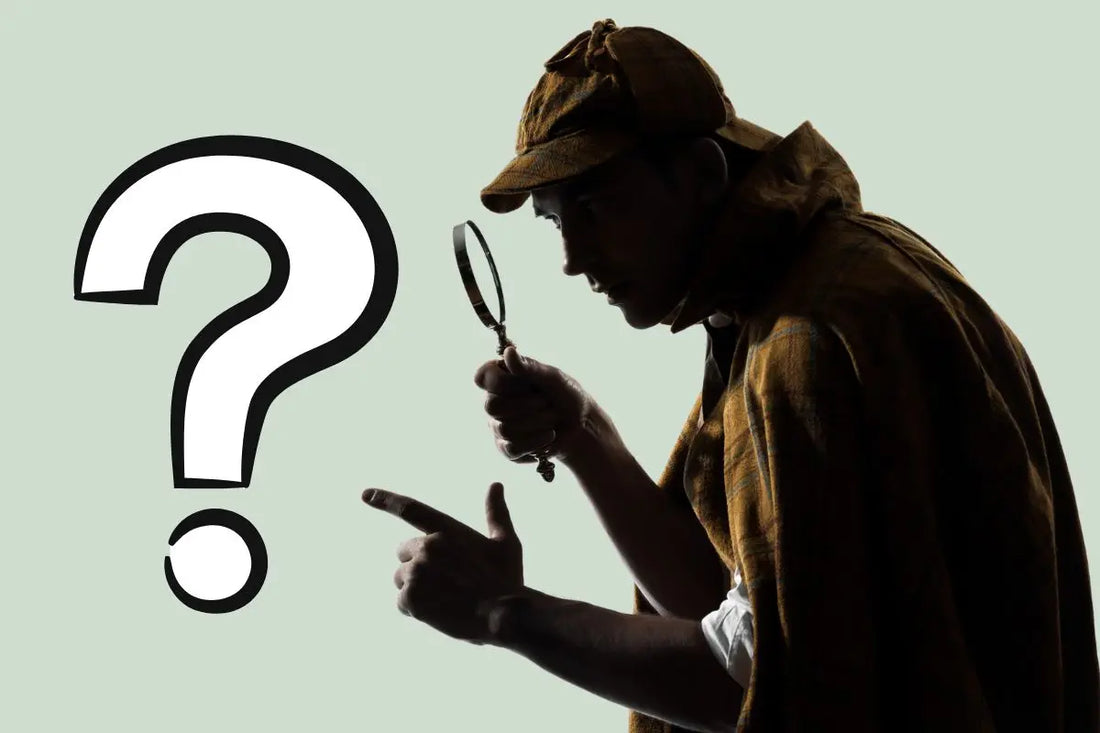
What Makes a Great British Detective?
Share
When it comes to detectives, I don’t think you can beat the British, whether you’re talking about detectives in books or detectives on the small or big screen. We Brits have created some of the most memorable British detectives, from Sherlock Holmes to Grace, Vera and double or even triple acts, like the detectives in Line of Duty. These detectives aren’t just walking brains; we read their stories and watch their shows because they have distinct personalities, their own personal sense of ethics and morality codes, and they inhabit a very certain world. So, let’s break down what goes into creating a great British detective.
1. Intelligence and Observation
It goes without saying, our great British detective must be clever – no room for bumblers here. They also have to be smarter than their peers, otherwise why would be give them our valuable time? So, they have to be especially intelligent and see the patterns other, more average, detectives miss.
2. A Strong Moral Compass
Many of the best British detectives aren’t just solving crimes—they are on the side of the angels and are investigating to get justice for the victim and their families. Take my absolute favourite British detective, Christopher Foyle (Foyle’s War). From the very first episode, the viewer knows what kind of a man he is; he will fight corruption even when it isn’t in his best interest, and he always knows right from wrong. Of course, there are some incidences in modern detective fiction where right and wrong becomes blurred and a detective will bend the rules to serve justice better if the system isn’t working, but they do so while sticking to their own moral code.
3. A Distinctive Personality
A great British detective needs to have an interesting personality, and the more flaws they have, the better. A personality isn’t just a collection of idiosyncrasies, like Poirot’s need for symmetry or Wimsey’s love of rare books; it’s also about their flaws, the things that make them human. So, Wimsey also has shell shock from his service in World War 1, Morse is always looking to fall in love, and Hastings is held back by his religious beliefs. While a great British detective can be an eccentric or outrageous, they also need to have something about them that brings them back down to earth.
4. A Trusted Sidekick
The sidekick dynamic is a British crime fiction staple. Watson, possibly the first sidekick, is our guide to Holmes, Hastings does the same job with Poirot, but goes further to point out his friend’s defects, such as his lack of humility and his foreignness, while Lewis provides a grounded counterpoint to Inspector Morse. The sidekick is the detective’s sounding board and is also us, the reader or viewer, asking the questions we need answers to. Their relationship often adds depth to the story.
5. A Connection to Their Setting
Some British detectives often have a deep connection with their environment. We can’t imagine Holmes being anywhere other than London, Morse out of Oxford, or Catherine Cawood out of Yorkshire. The best British detectives feel like they belong in their world, are a part of the geology.
6. Flaws and Humanity
No one wants to read about or watch a detective who never makes a mistake or whose judgement is flawless. It’s their flaws that make them compelling, but the more obvious flaws need to be avoided. We’ve had plenty of alcoholic detectives or who have problems with their marriage. For variety and to stop the genre going stale, we need detectives who have other problems to grapple with, such as a detective with OCD like DI Chandler in Whitechapel or Foyle’s dislike of corrupt authority.
Final Thoughts
In the early days of British detective fiction, and especially in the genre of whodunnits, a detective can be just a one-dimensional character, nothing more than a walking brain who is there to put all the pieces of the puzzle together and solve the case. But readers and viewers demand more depth in their detectives these days, and so they need to be fully-rounded human beings, yes, with powers than make them special amongst their peers, but who also have everyday human flaws.
Image Attribution: Special Collections Toronto Public Library from Toronto, Canada, Public domain, via Wikimedia Commons
